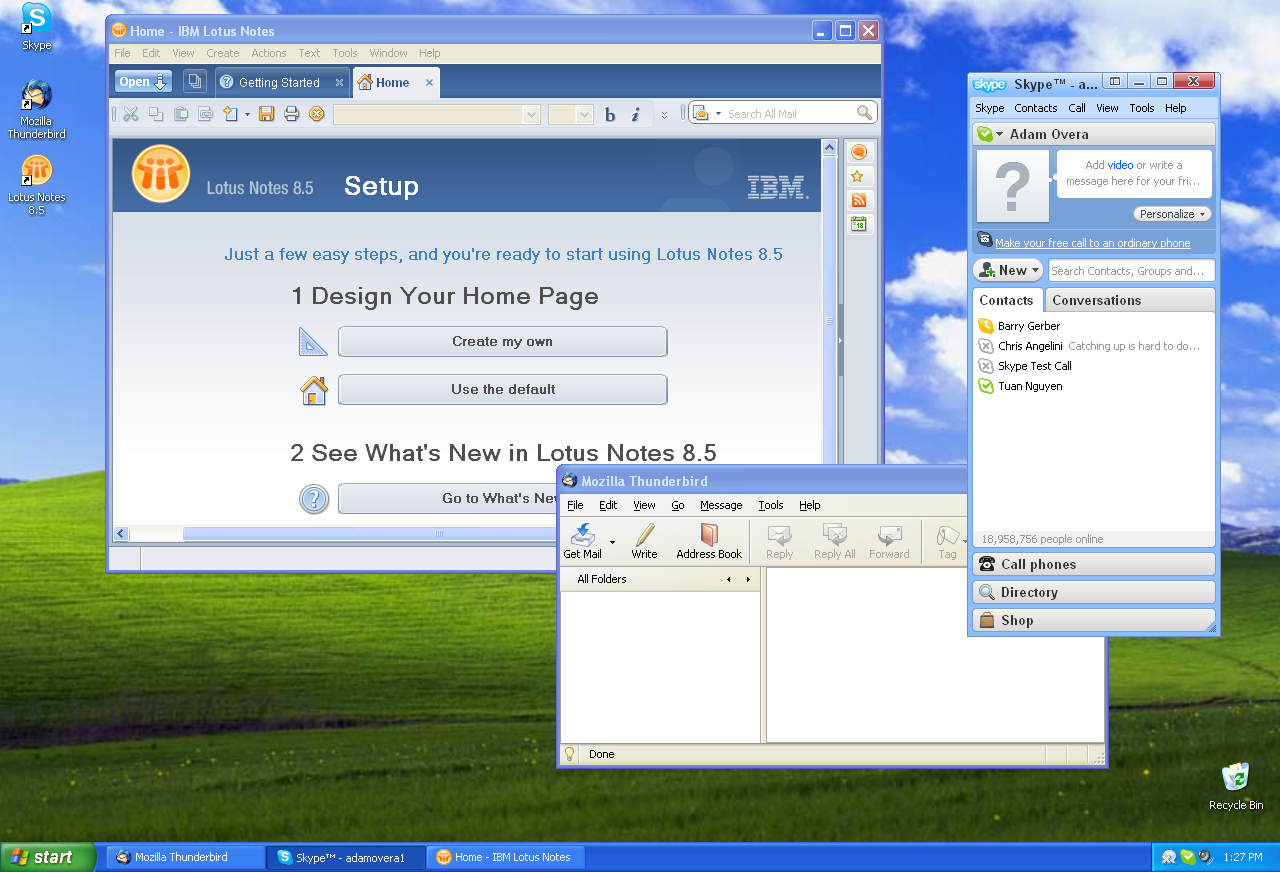Tom's Definitive Linux Software Roundup: Communications Apps
Conclusion
This concludes part two of Tom's Definitive Linux Software Roundup. You should have a good-sized list of personal information managers, email clients, instant messengers, VoIP apps, and IRC clients that run natively in Linux. If you considered such uber-popular titles like Outlook, Outlook Express, Trillian, or mIRC as barriers to Linux migration, consider that barrier broken.
Remember also that you can take Skype, Mozilla Thunderbird, and even Lotus Notes with you, too. Hopefully, you're just a little bit closer to breaking that Windows dependency if you so wish.
Part one was all about Internet software. With this segment, we added applications that also depend on Internet access, but also facilitate communicating with other people, and not just retrieving information from the Web.
In the next installment, we'll be breaking from our net-centric streak and focusing on office applications. As I stated in the Introduction, "Office Apps" is a whopper. A simple listing of office suites is not what you'll find. We will of course have them, but there will also be a separate page for each component. That means word processors, spreadsheet apps, presentation apps, simple databases, finacial software, desktop publishing, project management, and more. Hopefully, we'll help you find replacements for such mission-critical and industry-leadering software packages like Word, Excel, and Quicken.
Get Tom's Hardware's best news and in-depth reviews, straight to your inbox.
-
mitch074 I'd like to add something to the article...Reply
- Skype for Linux is currently in version 2.1 (beta) which differs from 2.0 (final) only in the fact that it is now able to deal with ALSA, OSS and PulseAudio transparently - and it doesn't wreck webcam outputs as much.
- Skype for Linux has supported video ever since version 2.0 (beta); it does work quite well if your webcam sends uncompressed video to the system (if your webcam streams MJPEG and you have a 2.6.28+ kernel, you will need some hacker-fu; details on demand)
- a quite well known single protocol IM is aMSN, which is also multiplatform; its other main advantage is that it supports voice and video chats. However, it's not always very stable and requires manual setting up of a TCP port for video and voice to work properly. -
How about benchmarking the applications. Which ones use more ram vs. functionality? How about responsiveness and stability? Those are questions I would like to see laid out because much of the Linux user base have older hardware and don't like things eating away their CPUs and ram.Reply
-
oralward You should really cover something with kde desktop as only because of protest by gnome users is it still the default desktop in any of the three versions you are covering. Its also easier for someone coming from windows. There is a version of ubuntu called Kubuntu that uses kde. This is the other main desktop.Reply -
Great article.Reply
As far as KDE vs. Gnome, I see no problem with the current format, maybe just do a Ubuntu(Gnome) vs. Kubuntu(KDE) vs. Xubuntu(Xfce) vs. MoonOS/OpenGEU/JAD(Enlightenment) roundup, to show off the different desktops(and the few apps that only work on a particular desktop). Any look good with the right theme and some Compiz/Beryl, but KDE and Enlightenment have an edge right out of the box. -
rrockman It's... "Surprising" that you didn't analyze Mercury, one of the most advanced multi-account IM apps.Reply -
haplo602 ah gui only options ... well have a look at CenterIM when you have time. It's a great little IM tool that runs in the terminal. This way I can get to my client everywhere with just a simple ssh client :-)Reply -
"The one major protocol that Empathy supports and Pidgin doesn't is the increaasingly-popular Jabber."Reply
This is just plain wrong. Pidgin has supported Jabber for a long time. It's called XMPP in the later versions which is the name of the protocol used by jabber clients -
rdawise Again, I praise Mr. Overa's coverage of Linux. I am looking forward to the Games section of Linux since I don't have much experience with native games.Reply -
jppayne2 "My major problem with Thunderbird is that it will continually ask for confirmation to ignore a security certificate every time it checks for new mail, by default, every ten minutes. Most of the other clients in this roundup give you the option to always accept or ignore."Reply
Actually, Thunderbird allows you to permanently accept the certificate, which will do what you want. Just pay attention when the confirmation dialog comes up, and select "Accept this certificate permanently". It's the first option (the default is the second option, which is to accept the certificate for the current session).
